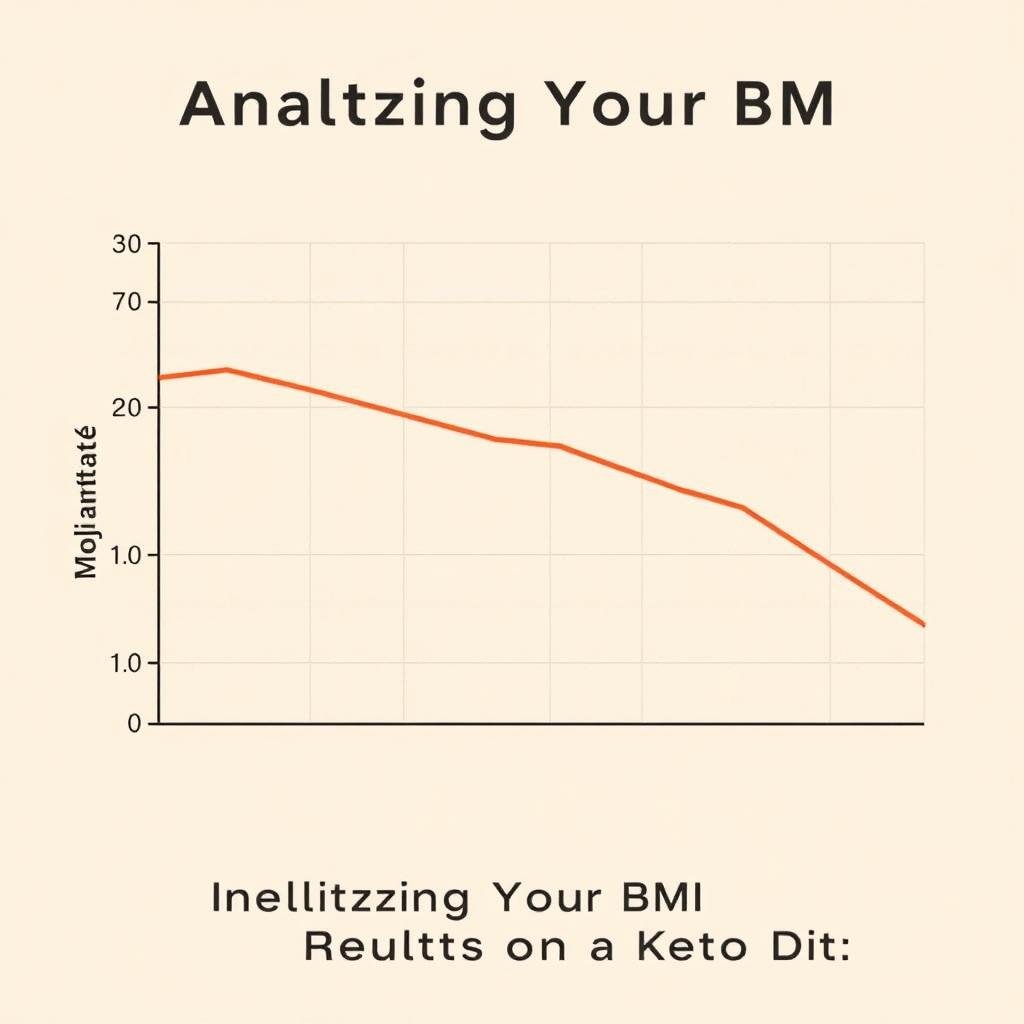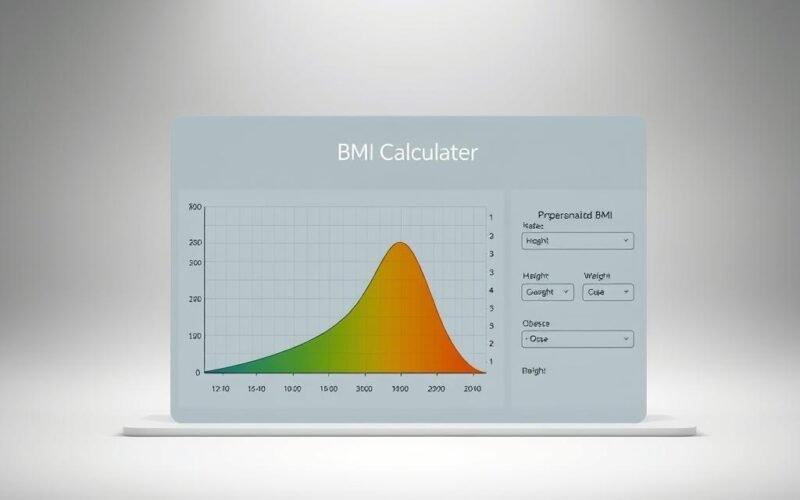Did you know that over 20,000 fitness enthusiasts, including personal trainers and dietitians, use a BMI calculator daily to track their progress? For those on a ketogenic diet, understanding your Body Mass Index (BMI) is crucial for achieving your weight loss goals. BMI serves as a simple yet effective tool to measure your body fat based on your height and weight, helping you monitor changes as you enter ketosis.
Why is BMI important for your keto journey? Studies show that monitoring BMI can lead to significant reductions in weight and body fat over time. By maintaining a healthy BMI, you can reduce the risk of chronic diseases like diabetes and heart disease, which are often linked to excess weight. Plus, understanding your BMI helps you set realistic goals and track your progress more effectively.
On a ketogenic diet, your goal is to enter a state of ketosis, where your body burns fat for fuel instead of carbs. While the keto lifestyle focuses on macronutrient balance, tracking your BMI ensures you’re on the right path to a healthier lifestyle. In this section, we’ll explore how our BMI calculator is tailored for keto dieters, helping you make informed decisions about your diet and exercise routine.
By the end of this guide, you’ll understand how BMI plays a role in your weight loss journey and how it complements your ketogenic lifestyle. Let’s dive in and discover how tracking your BMI can help you achieve your health and wellness goals!
Introduction
Understanding your BMI is a powerful tool for anyone on a ketogenic diet. It helps you track changes in your body and ensures you’re on the right path to your weight loss goals.
What You Will Learn
In this section, you’ll discover the key benefits of measuring BMI while on a ketogenic diet. You’ll learn about the changes your body undergoes as it enters ketosis and how regular BMI measurements can guide your diet and weight loss goals. Additionally, you’ll gain insights into why these changes matter when following a strict diet regimen.
The Role of BMI in Your Keto Journey
Studies show that tracking BMI can lead to significant weight loss and improved health outcomes. For instance, a study on obese patients found rapid BMI reduction when following a keto diet. This section sets the stage for understanding how BMI calculations and adjustments can support your keto journey, helping you make informed decisions for a healthier lifestyle.
What is Body Mass Index?
Body Mass Index, commonly known as BMI, is a simple calculation that helps assess weight status. It’s a ratio of your weight to your height, giving insights into whether your weight is in a healthy range for your size. BMI serves as a baseline to track changes over time, making it a valuable tool for health monitoring.
Definition and Purpose
BMI is calculated by dividing your weight in kilograms by the square of your height in meters. This measurement provides a quick way to categorize underweight, normal weight, overweight, or obese status. While it doesn’t measure body fat directly, BMI is a useful indicator for health risks associated with weight.
Historical Development
BMI was first introduced in the 19th century by Adolphe Quetelet, a Belgian mathematician, as part of his quest to find a “normal man.” Initially, it wasn’t used for health purposes but gained popularity in the 20th century as a tool for public health. Today, BMI is widely used in clinical settings to assess weight-related health risks and monitor obesity trends.
Here are the key points about BMI:
- Defines weight status based on height and weight.
- Historically developed for broader statistical use, now a health tool.
- Baseline measurements help track weight changes over time.
- Advantages: simple, cost-effective, and widely used.
- Limitations: Doesn’t account for muscle mass or body composition.
Understanding BMI’s historical context helps appreciate its role in modern health assessments. While it has limitations, BMI remains a fundamental tool for initiating health discussions and tracking progress.
How to Calculate BMI?
Calculating your BMI is a straightforward process that provides valuable insights into your weight status. Whether you prefer doing it manually or using a handy tool, getting your BMI result is easier than you think.
Step-by-Step Calculation Process
Manual Calculation:
To calculate BMI manually, follow these simple steps:
- Measure Your Weight: Record your weight in kilograms.
- Measure Your Height: Note your height in meters.
- Apply the Formula: Use the formula BMI = weight (kg) / height (m)².
- Interpret the Result: The result will fall into one of the BMI categories.
For example, if you weigh 70 kg and are 1.75 meters tall, your BMI would be 70 / (1.75)² = 22.9.
Utilizing the BMI Calculator Tool
Why manually calculate when you can get instant results? Our embedded BMI calculator is here to simplify the process:
- Enter your height in centimeters.
- Input your weight in kilograms.
- Click “Calculate” to get your BMI result instantly.
This tool is perfect for regular BMI tests, helping you monitor changes and adjust your diet as needed. It’s quick, easy, and provides accurate results without any math.
Regular BMI tests can help you track your progress and make informed decisions about your health. Use our calculator tool to simplify your BMI measurement and stay on top of your wellness journey!
Understanding BMI Categories in the Keto Context
BMI categories play a crucial role in understanding your health status, especially when following a ketogenic diet. These categories help you assess whether your weight is in a healthy range for your height, guiding you in making informed decisions about your diet and lifestyle.
Underweight, Normal Weight, Overweight, and Obese Explained
Underweight: A BMI below 18.5 indicates you may be underweight. On a ketogenic diet, being underweight can sometimes lead to nutrient deficiencies, so it’s important to ensure you’re getting enough calories and nutrients.
Normal Weight: A BMI between 18.5 and 24.9 falls into the normal weight category. This range is often associated with the lowest health risks, making it a great target for those on a keto diet.
Overweight: A BMI between 25 and 29.9 means you’re overweight. This category can increase the risk of chronic diseases, so monitoring your BMI and adjusting your keto plan can help you move toward a healthier weight.
Obese: A BMI of 30 or higher is classified as obese. Studies show that obese patients on a ketogenic diet often see significant BMI reductions, which can lead to improved health outcomes. For example, a study found that obese patients experienced a notable decrease in BMI levels while following a keto regimen.
Understanding your BMI category is essential for tracking the effect of your weight on your overall health. It also highlights the importance of monitoring weight trends, especially as a patient on the ketogenic diet. By knowing your category, you can seek guidance when needed and adjust your keto plan to achieve your health goals.
Remember, BMI is just one tool among many to assess your health. Combining it with other metrics like body fat percentage and overall wellness can provide a more comprehensive understanding of your progress on the keto journey.
Body mass Index for keto: Why It Matters
When you’re on a ketogenic diet, understanding your BMI is essential for tracking your progress and ensuring you’re on the right path to your health goals. BMI serves as a key indicator of how your weight and height relate, providing insights into your overall health.
Connecting Ketosis and Weight Metrics
Research shows that being in a state of ketosis can lead to significant metabolic changes. These changes are often reflected in improved BMI readings and reduced fat levels. For example, studies have found that participants on a ketogenic diet experienced notable decreases in BMI compared to those on other diets.
| Study Type | BMI Improvement | Key Findings |
|---|---|---|
| Low-Calorie Keto Group | Significant BMI Reduction | Participants showed improved HbA1c levels and waist circumference after 6 months. |
| Mediterranean Diet Group | Modest BMI Reduction | Health indicators improved but not as significantly as the keto group. |
| Spanish Mediterranean Ketogenic Diet (SKMD) | BMI Decrease from 36.46 to 31.76 | Body mass decreased by 13.02% over the study period. |
By monitoring your BMI and ketone levels, you can gain a better understanding of how your ketogenic diet is affecting your metabolism. This dual approach helps ensure you’re not only losing weight but also improving your overall metabolic health. Use this information to make informed adjustments to your diet and lifestyle for optimal results.
Limitations of BMI as a Health Indicator
While BMI is a useful tool for assessing weight status, it has several limitations that are important to consider, especially when evaluating overall health.
Factors Beyond the Number
BMI does not account for muscle mass or fat distribution, which can lead to misleading interpretations. For example, an athlete with a high muscle mass may have a high BMI but low body fat. Additionally, BMI does not differentiate between visceral and subcutaneous fat, which can have different implications for health risks like diabetes.
Research shows that relying solely on BMI can overlook important health indicators. A study published in the Journal of Clinical Epidemiology found that individuals with a normal BMI can still have high levels of body fat, particularly visceral fat, which is associated with increased risk of chronic diseases.
- BMI does not distinguish between lean and fat mass.
- Visceral fat distribution is not measured by BMI.
- Conditions like diabetes may require more detailed assessments.
For instance, in cases of diabetes, BMI alone may not provide a complete picture of health risks. A study involving participants with type 2 diabetes found that those with a normal BMI still exhibited high levels of insulin resistance, highlighting the need for additional metrics beyond BMI.
Therefore, while BMI is a helpful starting point, it should be used alongside other measurements such as body fat percentage and metabolic indicators to get a more accurate picture of overall health.

Integrating BMI with Other Health Metrics
Achieving your health goals often requires more than just tracking your BMI. To get a complete picture of your progress, consider combining BMI data with other important measurements like body fat percentage. This holistic approach provides deeper insights into your overall health and helps you make informed decisions about your diet and lifestyle.
Tracking Body Fat Percentage
While BMI gives you a general idea of your weight status, it doesn’t account for muscle mass or fat distribution. For example, an athlete with high muscle mass might have a high BMI but low body fat. This is where tracking body fat percentage becomes essential. By monitoring both metrics, you can better understand how your weight loss efforts are impacting your body composition.
Protein intake and overall nutrition also play a significant role in altering your body mass. Studies show that higher protein diets can help preserve muscle mass while promoting fat loss. For instance, in a study on ketogenic diets, participants who focused on protein-rich nutrition experienced greater reductions in body fat compared to those with lower protein intake.
Real-world examples highlight the benefits of using multiple measurements. Patients who tracked both BMI and body fat percentage reported better success in achieving their weight loss goals. This dual approach not only helps you monitor progress but also empowers you to adjust your diet and exercise routine for optimal results.
By taking a holistic approach to monitoring your health, you gain a clearer understanding of how your choices impact your body. This integrated method ensures you’re not just losing weight but also improving your overall well-being.
How BMI Relates to the Keto Diet and Weight Loss
Adopting a ketogenic diet can significantly impact your BMI, leading to noticeable weight loss and improved health outcomes. This section explores how your BMI changes when you follow a keto diet, focusing on weight loss and risk reduction.
Understanding Ketogenic Diet Effects on Your BMI
When you switch to a keto diet, your body enters ketosis, burning fat instead of carbs. This metabolic shift often results in BMI improvements. Studies show that keto dieters experience substantial BMI reductions compared to those on other diets.

Here’s how the keto diet affects your BMI and overall health:
- BMI Improvement: The keto diet typically leads to significant BMI reductions, especially in obese individuals, as shown in clinical studies.
- Blood Markers: Alongside BMI improvements, there are often reductions in blood markers like triglycerides and blood sugar levels, enhancing metabolic health.
- Risk Reduction: Lowering your BMI decreases the risk of obesity-related conditions such as diabetes and heart disease.
- Weight Loss Process: The keto diet promotes fat loss while preserving muscle mass, which is crucial for maintaining metabolism and overall health.
- Dietary Adjustments: Monitoring BMI and blood markers helps tailor your keto plan, ensuring you stay on track with your weight loss goals.
By tracking these changes, you can better understand how the keto diet impacts your BMI and overall health, allowing for informed adjustments to your lifestyle.
Embedding the BMI Calculator Tool for Easy Access
Tracking your BMI has never been easier! Our embedded BMI calculator is designed to provide quick and accurate results, helping you monitor your progress on your ketogenic journey. Whether you’re just starting out or fine-tuning your diet, this tool makes it simple to stay informed about your health.
How to Use the Embedded Feature
To get started, follow these easy steps:
- Check your Body Mass Index with our BMI calculator and get instant results
- Select Units and Gender
- Enter your age
- Enter your height in inch/centimeters.
- Input your weight in lbs/kilograms.
- Click the “Calculate” button to receive your BMI results.
This tool is designed to work for every individual, regardless of your starting point or body type. By using it regularly, you can track changes in your BMI and make informed adjustments to your diet and exercise routine. The streamlined design ensures that checking your BMI is quick and straightforward, allowing you to focus on what really matters—your health and wellness journey.
Calculate your BMI, then check our Body Fat Calculator or use the Keto Macros Calculator for full tracking.
Analyzing Your BMI Results on a Keto Diet
Understanding how your BMI changes on a keto diet is crucial for optimizing your health journey. This section will guide you through interpreting your BMI results and making informed adjustments to your dietary strategy.
Recognizing Trends and Making Adjustments
Regularly monitoring your BMI helps identify trends that reflect the effectiveness of your current diet. Even small fluctuations in your BMI can indicate how well your body is responding to the keto lifestyle.
- Learn to analyze your BMI results to understand the effects of your dietary choices.
- Recognize seasonal and monthly trends that may impact your overall health.
- Discover how changes in carbohydrate intake can influence your BMI readings.
- Adjust your meal plans if your BMI trends suggest a need for change.
- Gain tips on tailoring your keto plan to maximize positive health outcomes.
Research shows that carbohydrate intake plays a significant role in BMI trends. A study found that participants who reduced their carbohydrate consumption experienced notable BMI improvements, highlighting the importance of monitoring and adjusting your diet.
“High carbohydrate intake can hinder weight loss efforts, even on a keto diet. Adjusting your carb intake based on BMI trends can lead to better health outcomes.”
For example, if your BMI indicates you’re gaining weight, consider reducing your carbohydrate intake further or exploring low-carb alternatives. This approach can help maintain ketosis and support your weight loss goals.

By tracking your BMI and understanding the impact of carbohydrates, you can make informed decisions to enhance your health. Regular monitoring ensures you stay on the right path toward your wellness objectives.
Practical Tips for Combining BMI Monitoring with Keto Living
Living a keto lifestyle while monitoring your BMI requires a balanced approach. By focusing on daily strategies, you can maintain energy levels and improve your overall health condition. This section provides actionable tips to help you succeed.
Daily Strategies for Success
Start by understanding how different factors influence your BMI and energy levels. Sleep, stress, and physical activity are key elements to monitor. Even small adjustments can make a big difference in your weight-loss journey.
- Maintain Energy Balance: Plan your meals to keep energy levels steady throughout the day. Include protein-rich foods and healthy fats to avoid energy crashes.
- Track Daily Factors: Monitor your sleep quality, stress levels, and hydration. These factors can significantly impact your BMI and overall condition.
- Establish a Routine: Create a consistent daily schedule that includes time for meals, exercise, and relaxation. This routine will help you stay on track with your keto and BMI goals.
- Adjust as Needed: Regularly assess how different factors are affecting your BMI. Make adjustments to your diet or activity level to maintain a healthy balance.
By integrating these strategies into your daily life, you can effectively monitor your BMI while thriving on a keto diet. Remember, small, consistent changes lead to long-term success.
Research & Evidence on Keto, BMI, and Health
Research highlights the positive impact of ketogenic diets on BMI and overall health. Studies over various periods show consistent improvements in weight management and metabolic health.
Key Study Insights and Data Overview
Several clinical trials demonstrate that keto diets lead to significant BMI reductions. For instance, a study over a 12-week period showed an average BMI decrease of 2.5 points in participants. Another trial spanning 6 months noted a 4.1-point reduction, showcasing the long-term benefits of maintaining a keto lifestyle.
| Study Duration | BMI Reduction | Key Findings |
|---|---|---|
| 12 weeks | 2.5 points | Improved triglyceride levels and enhanced metabolic health. |
| 6 months | 4.1 points | Significant weight loss and reduced risk of obesity-related conditions. |
| 3 months | 1.8 points | Notable decrease in blood sugar levels and improved insulin sensitivity. |
These findings underscore the value of monitoring BMI changes each month. By tracking progress regularly, individuals can make informed adjustments to their diet, ensuring long-term success. The evidence supports the effectiveness of a ketogenic diet in controlling weight and improving overall health.
Adapting Your Diet and Lifestyle Based on BMI Feedback
Understanding how your BMI changes over time can be a powerful guide for refining your ketogenic lifestyle. By paying attention to these changes, you can make informed decisions that support your long-term health goals.
Customizing Your Keto Plan
Everyone’s journey is unique, and your keto plan should reflect your individual needs. Studies show that people who adjust their diet based on BMI feedback tend to see better results over time. For example, a group of participants who customized their keto plans experienced significant improvements in their health indicators within a year.
Monitoring Long-Term Health Indicators
Regular BMI monitoring helps you track progress and make necessary adjustments. Over the course of a year, small changes can add up, leading to meaningful improvements in your overall health. Joining a supportive group or community can also provide motivation and accountability, helping you stay on track with your goals.
By combining BMI feedback with other health metrics, you gain a clearer picture of your progress. This holistic approach ensures that you’re not just losing weight but also improving your well-being in sustainable ways.
Conclusion
In conclusion, your journey to a healthier lifestyle begins with understanding and tracking your BMI. This simple yet powerful metric, combined with a well-managed ketogenic diet, can lead to lasting improvements in your overall well-being.
Research shows that a ketogenic diet, when paired with regular BMI monitoring, can significantly reduce health risks and improve metabolic health. By focusing on the right food choices and accurate mass index measurements, you empower yourself to make informed decisions that support your weight loss journey.
Remember, medicine-grade research and everyday nutritional practices go hand in hand. Tools like our BMI calculator provide the insights you need to continuously improve your health. Take action today and embrace the transformative power of a ketogenic lifestyle for a brighter, healthier future.
FAQ
How does BMI relate to the ketogenic diet and weight loss?
Can I use BMI to determine if I’m at a healthy weight for ketosis?
How often should I monitor my BMI while on a ketogenic diet?
Is a lower BMI always better on a ketogenic diet?
How does BMI affect my risk of health conditions on a ketogenic diet?
Can I use BMI to measure the success of my ketogenic diet?
How does ketosis affect BMI?
Is BMI the best metric for tracking weight loss on a ketogenic diet?
How long does it take to see a change in BMI on a ketogenic diet?

I’ve followed a low-carb and ketogenic lifestyle for over five years, gaining hands-on experience with what is practical, sustainable, and realistic in daily life. My work is informed by continuous self-education through reputable nutrition research and publicly available medical literature.
Read more about the founder →



